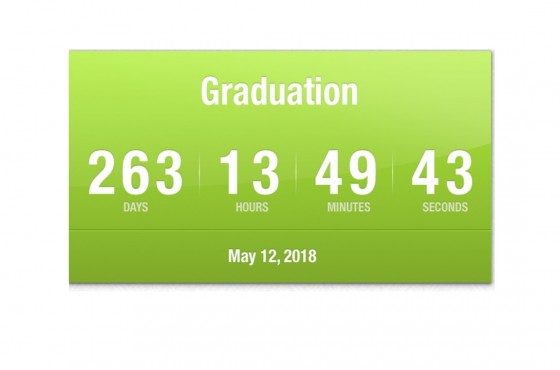Two Students. Two Different Job Search Outcomes
This is a story of two students. Both are graduating college this weekend. As freshman, each had an idea of the career they wanted to pursue and chose their majors accordingly. Each directed their on-campus activities to align with their careers and rose to leadership positions within the organizations. And both had summer internships in their career fields. This weekend one is graduating with a job while the other is not.
Now, I know these students well—very well, I work with them. I have a process to help students understand their value in the job market and from that together we design and execute a job search plan. So, what happened? Why is one heading to LA with a job in the entertainment industry and other home?
Building your professional network
You will not get a job sitting in front of your computer. The odds of getting an interview from submitting your application online are not in your favor. There are too many variables you can’t control, most are associated with applicant tracking software (ATS.) Let’s be clear about this. ATS screens applicants out not in. From the thousands of resumes submitted, Human Resources, recruiters, hiring managers will review about 25-30 to narrow it down to 10-12 to phone interview to get to the five or so to interview by Skype and then in person to offer the job to one. The math doesn’t work.
Perhaps you met the recruiter at the school’s career fair. You got your 10 minute/ five question interview and handed over your resume. Great first step. However, that recruiter does the circuit of schools on the employers list it wants to recruit from meeting thousands of students during the recruitment period. Again, the math doesn’t work in your favor.
This is the first difference between the two students. One built a professional network, the other did not. Who do you think said to me, “…I tired of talking to people who can’t offer me a job.” Not the point and certainly not the right attitude when you are looking for a job. People read your voice, tone and body language.
A way for college students to build their network outside of professors, family and friends is to have an internship and use that internship to initiate conversations with professionals in areas of interest to you. Ask the right questions and you will get them to share their experiences, ideas, information and advice that can be helpful to you, and because you came across as thoughtful and articulate, it’s likely your resume will be passed on to others. Informational interviews work. One student saw the internship as the way to meet people in all aspects of the industry. From personal assistant to director from casting to development and talent management to talent agent. By day a personal assistant, after five a masterful connector. This student left LA with a rolodex of people to stay in contact with throughout the school year. For the other student, it was simply a summer job.
You say you don’t know people who can help you. Not true. Remember when you did the campus tour and admissions boasted about their alumni network—use it. Start with alumni relations. They work for you as do career services (your tuition pays for their salaries.) Alumni relations has a sortable and searchable database, and there is at least one person in the department who is responsible for developing employer relationships. One student found the person responsible for developing employer relationships who had the connections needed in LA. He opened doors and paved the way. They will do anything to help each other now.
Go to career services. If your school puts on career fairs, panel discussions and the like they also have a database. Be specific. Saying I’m looking for a job is not helpful. Going in with a list of employers or people you want to connect with is. People want to help. You need to tell them how.
Do you know that your school has a LinkedIn profile page? Well yes it does. Click on the alumni tab and anyone who lists your school on his/her LinkedIn page is in that database. You can search by geography, career, company and more and see parts of their profile. DO NOT send a simple connect request. (InMail if you can but use connect if that is your only option.) “As an alum, do you have 15 minutes to talk about xyz?” “I’m a student at abc university, do you have 15 minutes to talk to me about working in such and industry?” Some will, some won’t and those that do are super helpful.
Are you a member of a sorority or fraternity and/or a campus club or organization? Whoever has come to speak to your group is another person you can reach out to and talk with to learn from and potentially get more names.
This is how you start to build your professional network.
Close out the conversation and follow up and through
You are starting off your career. Act professionally. It’s your job to end the conversation and yours to maintain ongoing contact. It takes more than sending a thank you (which is not a simple thank-you, it’s a way to market yourself) after you talked to someone (within 24 hours.) It’s staying in touch by ending the conversation with may I link in with you, please let me know if there is something I can help you with and asking, may I reach out to you again if I have any more questions. Read an article that is relevant to the person or conversation you had—send it with an email. Did you see that s/he or the company were recognized for something—send an email. Finished your Capstone film, send it. Find ways to follow up and stay in touch. I can’t say this enough: follow up and follow through. And, when you do land a job, close the loop.
Resilience
It’s so easy to throw up your hands and give up. A job search can do a number on your ego. More than just the current buzzword, you need resilience when searching for a job. Sheryl Sandberg in her book with Adam Grant, Option B learned, “[Resilience] isn’t about having a backbone. It’s about strengthening the muscles around your backbone.” There’s a lot of rejection in a job search. People don’t return calls or emails. Resumes are sent off into cyberspace. Resilience comes from deep within us and from the support around us. Understanding the value, skills and talents you bring to the workplace is a place to start. You have something to offer.
Building a professional network, following up and through, finding your inner strength is taking control of your job search.



